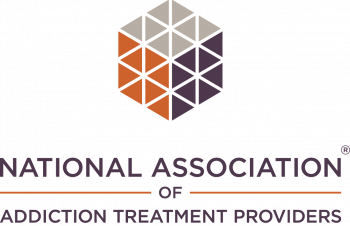Drinking beer, wine, or your favorite spirit is a way to celebrate, socialize, and unwind. However, drinking too much as a way to deal with heavy emotions has a lot of negative consequences, including alcohol dependence.
Alcohol dependence is a dangerous condition that can make way for negative behaviors and characteristics. This occurs when the brain functions change due to alcohol. When this happens, one cannot function normally. But it is possible to overcome dependence and remain sober with alcohol addiction treatment. TruHealing Gaithersburg provides individuals struggling with alcohol dependence the therapeutic services necessary to heal and recover.
Alcohol Abuse vs. Alcohol Dependence: What’s The Difference?
Substance issues can be divided into two categories of abuse and dependence. Clarifying the distinction between these two terms is important. Alcohol abusers are people who continue drinking despite continuing legal, health, social, and interpersonal problems that happen as a result of their alcohol use. On the other hand, those who are alcohol dependent showcase characteristics that include:
- Withdrawal symptoms
- Alcohol tolerance
- Drinking to deal with withdrawal symptoms
- Awareness of compulsion to drink
- Drinking large amounts of alcohol
Of all the characteristics mentioned above, tolerance is the most prevalent and noticeable aspect of those who have alcohol dependence. They need to consume large amounts of alcohol to achieve the effects that are usually produced by lower alcohol doses. Aside from this, they also feel uncomfortable when they stop drinking.
For these reasons, many individuals suffering from alcohol dependence are emotionally, physically, and psychologically reliant on alcohol and continue to consume alcohol despite knowing the negative effects it may bring, such as sweating, tremors, and nausea.
How Does Alcohol Dependence Develop?
No person sets out to drink in hopes of becoming alcohol dependent. But consistent heavy drinking can result in alcoholism and dependence. When a person drinks, alcohol enters their brain. This step disturbs the balance of neurotransmitters that allow the body to function well. This disruption also makes way for physical signs and behavioral changes linked with intoxication, such as loss of inhibition, drowsiness, slurred speech, subpar coordination, and euphoria.
Luckily, all these wear off when the body breaks down alcohol. But when the exposure is continuous, the brain wants to compensate for its effects, and this begins the cycle of chemical changes.
To fight the effects of alcohol, the brain increases excitatory neurotransmitter activity. This process stimulates arousal and nerve activity. When these changes happen, individuals need larger amounts of alcohol before they can feel its effects, which results in escalated drinking. People are also likely to start craving alcohol intensely as they deal with physical withdrawal symptoms that cause distress, such as:
- Elevated heart rate
- Anxiety
- Tremors
- Insomnia
- Sweating
These symptoms can be felt six hours after someone with alcohol dependence has consumed their last drink. To avoid these symptoms, someone may start drinking more frequently.
Heavy consumption of alcohol is also dangerous to the reward system of the brain since it limits the way a person perceives pleasure as well as the ability to control behavior. In time, these adverse changes, along with withdrawal symptoms, will create a cycle of dependence that hooks a person on alcohol.
Unfortunately, alcohol dependence is untreated in most individuals so much so that only 6.7 percent of those with alcohol use disorder receive treatment. Most people even wait up to ten years before they get help.
You Can Get Through This With Help From TruHealing Gaithersburg Therapy
If you have a problem with alcohol dependence, don’t worry- there is hope. You can decide to change your life and escape from this downward spiral. There are various treatment options available at TruHealing Gaithersburg. So do not hesitate to seek the help of professionals that are dedicated to helping you take back control of your life. Contact us today at (833) 625-0398.









